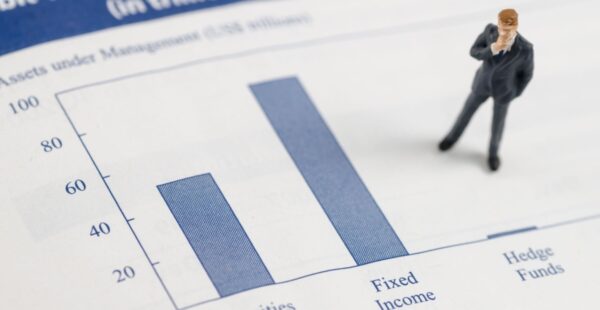Rising rate risks cause market ripple effect

The pressure of policy tightening due to rising inflation will have a ripple effect across the market and in three key areas including rates, equities and supply chains, according to Morgan Stanley Investment Management.
Insights from Morgan Stanley revealed major equity regions are expected to deliver strong earnings per share (EPS) growth this year, despite the IT sector and U.S. equities being most at risk from rising real yields.
“When you have a growing environment, growing interest rates, EPS growth is likely to be strong as well,” Andrew Harmstone, Senior Portfolio Manager, Global Multi-Asset and Head of Global Balanced Risk Control at Morgan Stanley Investment Management, said.
“Unfortunately, one of the consequences of strong growth is upward pressure on real yields, and that in turn has a negative impact on equity valuations.
“What we are also seeing since the end of 2021 is a change in investor willingness to take on risk. The last month has highlighted that equities can be volatile, and it is now changing investors’ risk tolerance.”
The key takeaway from 2021 was the pressures of inflation felt by supply chain bottlenecks. For 2022, the Omicron variant is set to prolong the disruption particularly in Asia despite improvements in port congestion and delivery times.
“With the Omicron variant, supply chain disruptions may last a bit longer than we would hope,” Harmstone said.
“This makes it a difficult environment for central banks not to tighten because of inflationary pressures, which will be visible for some time and creates the risk of rising real rates as central banks respond to the inflation data.”
Eric Zhang, Portfolio Manager, Asia and Head of Tactical Positioning, Global Balanced Risk Control at Morgan Stanley Investment Management, also said these pressures could be felt more in emerging markets.
“As we progress to the latter part of the year and when we pass through the Omicron variant wave, the global economy will continue to recover and that will have varying impact on emerging markets.
“For example, slowing commodity growth and inflationary pressures are likely to impact emerging markets that are closely linked to commodities, such as Latin America.”
Harmstone also highlighted how investors should act cautiously as issues plague the market during this time, while also looking for opportunities in market weaknesses.
“It also suggests to have an underweight in duration because of the rising rate environment. Broadly speaking, we want to avoid asset classes that are more exposed to rising real rates and also favor those tend to benefit from that.
“Obviously, valuations are becoming more important now given the change in investor risk tolerance.”












Here comes another moral hazard. It just encourages the bureaucracy to bloat at the expense of productivity and prosperity.
Rules only apply to some, generally if your cheque book is large enough then you are ok to do whatever…
This is the sort of rubbish that comes out of the modern version of Treasury advice. The boys over in…
This just goes to show the contempt and distain by regulators for the advice sector. A never-ending pole on stuff…
Happy to pay a Levy for every Govt Service. We just stop paying Income tax, GST, Payroll tax, Super Tax,…